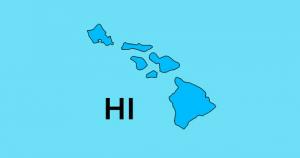Hawaii: Bill introduced to provide healthcare coverage to low-income undocumented immigrants...with one catch

Hawaii Senate Bill 842 was introduced in January by 10 Democratic state legislators.
I've grown to absolutely love the way Hawaii state legislation summarizes the situation being addressed by the bill in question; they don't hold any punches in explaining why the bill is necessary:
The legislature finds that obstacles to access to health care based solely on immigration status prevent many low-income immigrants and immigrants' families from obtaining affordable health care coverage through medicaid, the Children's Health Insurance Program (CHIP), and health insurance exchanges established under part II of the Patient Protection and Affordable Care Act.
The legislature further finds that state and federal laws deny access to medicaid, CHIP, and health insurance exchanges established under part II of the Patient Protection and Affordable Care Act to all Deferred Action for Childhood Arrivals (DACA) recipients; undocumented persons; and applicants without work authorization attached to the applicant's request for registry, orders of supervision, cancellation of removal or suspension of deportation, legalization under the Immigration Reform and Control Act, legalization under the Legal Immigration Family Equity Act, and asylum, except asylee children under fourteen years old.
The legislature further finds that Hawaii is home to an estimated 41,246 undocumented and DACA-eligible persons. These residents were born in the Philippines (54.6 per cent); Japan (9.3 per cent); China (8.8 per cent); Korea (6.2 per cent); Mexico (4.6 per cent); and Europe, Canada, and other countries (16.5 per cent). Approximately eleven thousand of Hawaii's undocumented and DACA-eligible residents are uninsured and forty-three per cent of these residents' households have incomes that fall below two hundred per cent of the federal poverty level. Yet, in 2018, Hawaii's undocumented households earned approximately $804,000,000 in wages and paid an estimated $66,000,000 in federal income taxes and $45,000,000 in state and local taxes.
The legislature further finds that low-income immigrants without access to health insurance face persistent inequities in the prevention, diagnosis, and treatment of health care conditions, including routine health problems and those commonly addressed with preventive care, prenatal and post-pregnancy care, necessary specialty care, and mental health, substance abuse, and oral health care.
The legislature further finds that the department of human services oversees and manages the State's medicaid program and other critical health care services. Current funding is inadequate to cover needed medical services provided through community health centers and other nonprofit health care providers. Therefore, the purpose of this Act is to appropriate funds to purchase health care services for low-income, uninsured immigrants ineligible for medicaid, the Children's Health Care Program, and health insurance exchanges established in part II of the Patient Protection and Affordable Care Act.
It's important to understand that unlike California or Washington State, this bill does not appear to be trying to actually allow undocumented Hawaiians to enroll in Medicaid, CHIP or ACA exchange plans. Instead, it appears to simply require the state to fund some form of healthcare coverage for the ~11,000 undocumented/DACA residents in question:
SECTION 2.
There is appropriated out of the general revenues of the State of Hawaii the sum of $ or so much thereof as may be necessary for fiscal year 2023-2024 and the same sum or so much thereof as may be necessary for fiscal year 2024-2025 for the purchase of health care services for low-income, uninsured immigrants ineligible for medicaid, the Children's Health Care Program, and health insurance exchanges established in part II of the Patient Protection and Affordable Care Act; provided that, for the purposes of this Act, "low-income" means an individual whose household income is at or below one hundred fifty per cent of the federal poverty level.
The sums appropriated shall be expended by the department of human services for the purposes of this Act.
I'm not sure why they don't just try to add these ~11,000 people to Medicaid/CHIP. Maybe that would involve more red tape or regulatory hoops to jump through. Regardless, assuming the bill passes, that would still be up to 11,000 more people with healthcare coverage, which is of course a good thing.
However, the final section of the bill closes with a rather odd provision:
SECTION 3.
This Act shall take effect on December 31, 2050.
Um...ok, then.
I don't know if that's just a placeholder with the final date to be substituted later on (maybe they're debating whether the state budget can handle it starting in 2024 vs. 2025 or something?), or if the entire bill is supposed to be more of a symbolic messaging thing?
Either way, you don't see bills which don't go into effect for another 27 years very often.
How to support my healthcare wonkery:
1. Donate via ActBlue or PayPal
2. Subscribe via Substack.
3. Subscribe via Patreon.



